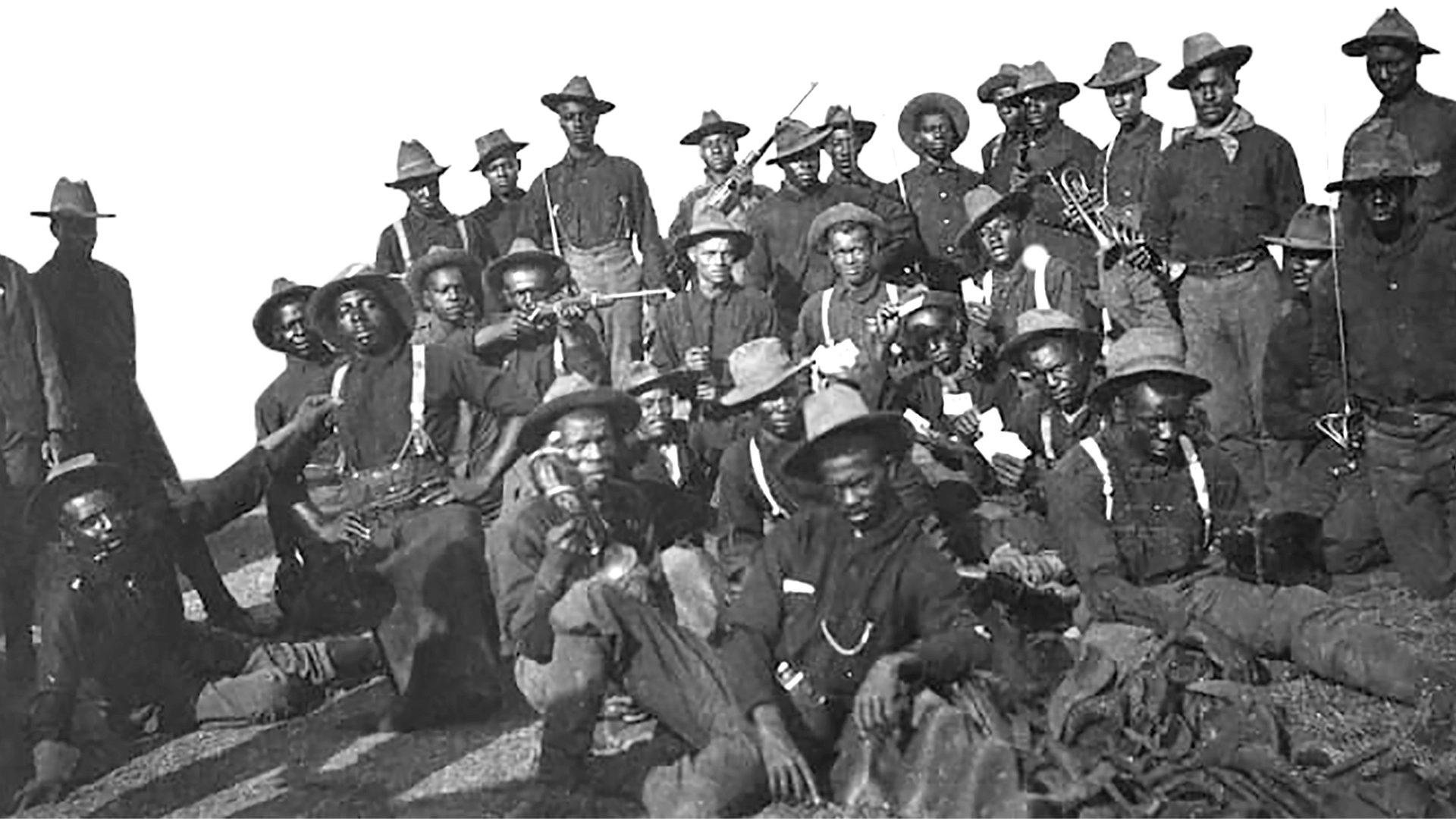
The Charge


Spanish American War
1898—1898
The Charge
During the Spanish American War (1898), Black Americans served their country with courage and valor from Puerto Rico to the Philippines. Teddy Roosevelt’s 1st Volunteer Cavalry, the “Rough Riders,” might have been wiped out if it weren’t for the all-Black units who fought ahead of them.
ShowHide Transcript
Little remembered today, the Spanish-American War lasted for ten weeks in 1898. For years, Americans had supported Cuba’s fight for independence from Spain, but without lending military aid.
Tensions were high in February 1898 when a Navy cruiser, the USS Maine, exploded in Havana Harbor. Hundreds died, including over 30 African American sailors. With that, the war was on.
Just as in every previous war, Black Americans served their country with courage and valor from Puerto Rico to the Philippines.
Elijah B. Tunnell, a cook aboard the USS Winslow, went on deck to assist crewmates under fire from Spanish guns. Maimed by an exploding shell, Tunnell asked as he was carried belowdecks, “Did we win the fight, boys?” When told “yes,” he responded, “Then I die happy.”
In Cuba, Teddy Roosevelt’s 1st Volunteer Cavalry, the “Rough Riders,” won fame fighting on land.
But Roosevelt and his unit might have been wiped out if it weren’t for the all-Black units who fought ahead of them: the 9th and 10th Cavalry, and 24th and 25th Infantry.
When the Rough Riders were pinned down by heavy fire, the 10th Cavalry’s machine guns cleared the path. One gunner, Corporal Brown, paid with his life to free Roosevelt’s unit.
When they were taking fire from all sides at San Juan Hill, it was the men of the 9th and 10th Cavalry who charged forward to save the day. Five Black soldiers of the 10th received the Medal of Honor, and 25 more received the Certificate of Merit.
After ten weeks of intense fighting, Spain surrendered and America had won the war.
The Spanish-American War showed the world that the United States was a global power. Black Americans, still serving in segregated units under white officers, played a major role in the nation’s success.
This racial divide would last several more decades. But one young Black soldier who served during the war helped to change everything. Enlisting in July of 1898, Benjamin O. Davis spent his career in the military and later became the first Black general.
Fifty years after the war, Davis would prepare an extensive report for Harry Truman on racism in the military. It would play a crucial role in desegregating the armed forces.
When they were taking fire from all sides at San Juan Hill, it was the men of the Ninth and Tenth Cavalry who charged forward to save the day.